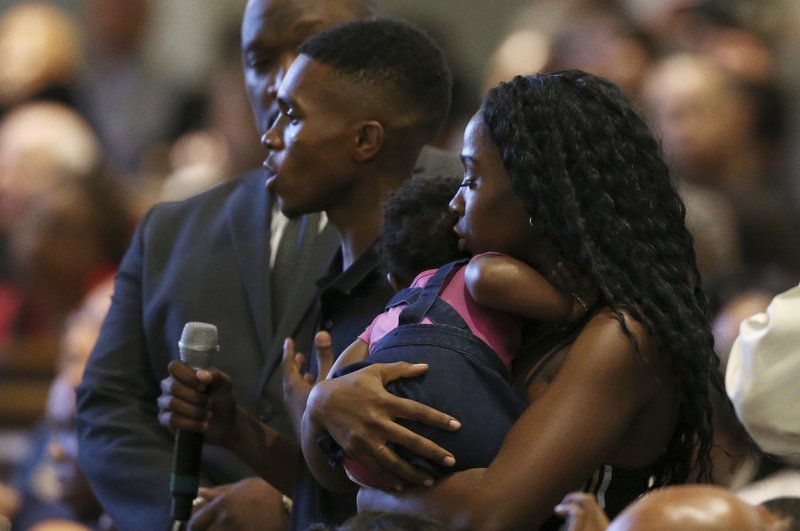PHOENIX -- Still stinging from a confrontation this summer where officers pointed guns and cursed at a black family, residents and officials in the country's fifth-largest city have held talks to offer ideas on how civilians could help oversee the police.
"I want to see, hear, feel and touch what you are coming up with so we can make real change," said Phoenix Police Chief Jeri Williams, wearing a casual civilian shirt and slacks to a recent gathering in a church gymnasium. "I understand we have some real internal work to do."
Phoenix is among the last big U.S. cities without independent civilian oversight of police, said Samuel Walker, professor emeritus of criminal justice at the University of Nebraska, Omaha. Phoenix's powerful police union has blocked past efforts to establish such a board and is resisting the new push.
Los Angeles, New York, San Francisco, Chicago, Detroit, Denver and Portland, Ore., are among many cities with some kind of civilian oversight, with more joining after high-profile police killings of black men and others in recent years.
Williams, who's a black woman, and other Phoenix officials are moving toward adopting some kind of independent civilian oversight of police and are visiting communities this month to review their models.
Walker, who co-wrote the book The New World of Police Accountability, said citizen oversight is a must for all modern U.S. police agencies.
"Phoenix needs to get over this opposition to civilian oversight. It exists virtually everywhere else," Walker said. "It is a basic way of building trust."
Walker said there are two basic types of oversight: civilian review boards, which investigate individual complaints, and independent auditors or monitors, which he prefers because they recommend practices and policies. There are also hybrids with elements of both.
"The communities need a process they can trust, whether it is a board, an auditor or a monitor," said Liana Perez of the educational group National Association for Civilian Oversight of Law Enforcement.
While oversight boards or monitors offer recommendations, final decisions on firings and other discipline lie with the police chief and city and state laws.
The Phoenix Law Enforcement Association said on its website that it's a "bad idea" for civilians unfamiliar with state and U.S. constitutional law to make independent recommendations about police discipline.
The union added that residents already sit on some Phoenix police boards with officers and commanders who oversee use-of-force cases.
But the civilian review models would go further and be independent from the Police Department. Civilian board members could recommend discipline of officers and changes in policies and procedures. Depending on what Phoenix chooses, board members could even get subpoena power to compel people they are investigating to testify.
The police union did not respond to requests for additional comment on civilian review.
Cellphone video emerged in June showing Phoenix officers answering a shoplifting call by aiming their guns and yelling obscenities at Dravan Ames and his pregnant fiancee, Iesha Harper, who was holding their 1-year-old daughter. The video sparked outcry nationwide.
The couple later said their 4-year-old daughter took a doll from a store without their knowledge.
Phoenix also has moved to build greater trust and transparency by recently rolling out the last of 2,000 body-worn cameras for a force approaching 3,000 officers, one of the last big police agencies in the U.S. to do so.
The department this month also began training officers to track when they point their guns at people, a procedure now embraced by departments nationwide.
The National Police Foundation recommended that policy after finding Phoenix had 44 officer-involved shootings last year, more than any other U.S. law enforcement agency. Twenty-three were fatal.
Gizette Knight, a former New Yorker living near Phoenix, said she thinks increased community policing, in which officers have greater contact with residents, would be just as helpful as independent civilian oversight.
"The police knew who we were, they knew my grandma, and all the neighbor kids," Knight, 33, said of her old neighborhood in Queens.
More than anything, residents and the police should consider new ways of viewing law enforcement, said Jody David Armour, a University of Southern California law professor who specializes in race and legal decision making.
"For long and abiding changes, it will take a kind of revolution in the way we think about crime and punishment," Armour said. "And in our relations between police and the community."
A Section on 08/18/2019

